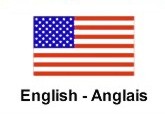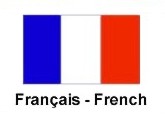To Man's Measure
Voluntary Aid
For a time, before we went into the war, letters were still delivered from Europe. They had been opened, marked "Read by Censor,"
then pasted together again; they were dirty with handling; they looked as if they had been lost for months. Their language was
guarded. But, from them, you got an idea of what was happening to your friends and relatives abroad. Then we were at war. War
stopped the mails.
To most Americans, this did not matter; a great many had never written a letter to, or received one from, Europe. To other millions
of Americans, the stopping of the mails brought special private anxiety and frustration. To them, general disaster for a continent
meant specific disaster for specific people, people with names, first names, ages, and in specific places � in the dark courts of
the Old Ghetto in Warsaw; in the second house on the left after the church in San Giovanni in Fiore, Calabria, Italy; in the B�low
platz in Berlin; in Ruthenian Munkacevo; in Salonika, Greece. When the mails stopped you could no longer write to or help these people.
So you gave to the National War Fund till the war ended.
Then you stood in line at the post office, with a package to send abroad; sometimes the package was overweight, or it was not tied
right, and then you had to do it all over again.
Everywhere stores put out signs offering to attend to the shipments, attending also to their profits. CARE was set up � a non-profit
organization. The government helped pay for the shipment of packages to the countries it was helping. Through CARE, eight million
packages of food, clothing, and bedding have gone out since 1946 to fifteen countries, and the CARE shipments represent only a
minor percentage of the total.
At the end of the war there was the possibility of reunion through the mails; it was seized upon; Europeans with discoverable
mailing addresses benefitted. Other Europeans were no longer at home - the Jewish people, to take the cruellest example of
dispersion. Reunion with the dead is not possible through the mails - six million Jews had been murdered. You cannot send CARE
packages to the lost - thousands upon thousands of Jews were lost without trace. Everywhere in Europe, there were citizens of
nations that no longer existed, people with no homes ever to return to. That is why the reunion could hardly be complete.
A whole continent (a world) was ruined; all America set to work rebuilding the ruins - as if a farm had burned down in the
countryside and the neighbors came to do what they could.
If you think of it that way, you can talk about American aid to Europe without making it seem that Americans were the only generous
people who ever lived. People are always generous when there is trouble right at home; this time the trouble across the seas
became as evident to Americans as if it were in one of our states.
People who had never known anyone abroad, who had no families abroad, who had all their interests here, and their business here (or
were farmers), who had no particular reason for thinking, or, at least, no habit of thinking about people outside America, thought
now about foreigners in distress as if they were Americans in distress. It was natural enough for the Jewish people in America to
help the Jewish people abroad, for the Catholics to be concerned with the Catholics, the Protestants with the Protestants, the
Quakers with everybody; naturally every group here thought of a corresponding group abroad; but what also happened is that it became
natural for Americans with no connections abroad to think of Europe.
This awareness did not come suddenly. Before the war, Americans had helped the refugees from Nazi Germany, the Chinese when
they were driven from their homes by invasion, the Spanish during their civil war. And when the world war started, Americans sent
bundles to Britain, at one end of Europe, food and medicine past the submarines to Greece, at the other; for every country in
between there were one or more committees, and, for Poland, there were a hundred.
When the war ended, the government started UNRRA and then the Marshall Plan, but the American people acted as if something done
by the government is not as good as something you do yourself. They acted as if they were paying no taxes for European recovery,
as if everything depended on what they did themselves, as individuals or in groups.
We use our American methods. Some people go out and send off a food package without a word to anyone; others get a brass band. It's
fine both ways. We use the radio, publicity, movie stars, and trick names, and a lot of the work is done by all kinds of agencies.
The Friendship Train rolled across the country; so many people wanted to put cans of food on it that there had to be two sections -
one for the North, another for the South, five hundred box cars altogether. The Michigan Junior Chamber of Commerce put a
Friendship Food Caravan on the road. The Mid-West CROP (Christian Rural Overseas Program) Train, started by a man who said that
"rural folks didn't have the same opportunity as city folks to contribute to overseas relief" filled more than a thousand cars
with food from twenty-five farming states. There were ships, too: the Pacific Northwest Christmas Ship, the California Goodwill
Milk Ship, the Yankee Relief Ship.
We like to organize. And so the returned veterans, the Rotary Clubs, the League of Women Voters, Third Grade School Children from
Passaic to Pasadena, churches (not "denominations" - village churches with picnics on the lawn in aid of Greek children) and
labor unions organized drives for relief. Dunkirk, N. Y., adopted Dunkerque, France. Morganville, Kansas, adopted Feves, in the
hills of Lorraine, because it wished "to do something which will help broaden our vision beyond our rim of prairie." Five hundred
communities in America did things for five hundred communities abroad.
When you say that since the outbreak of the war individual gifts of money or goods have amounted to more than four billion dollars,
or that in 1948 alone two-thirds of a billion of voluntary aid was sent abroad, the sums are staggering.
Through the individual action of people in this country many Europeans lived who would have died. That is the result we sought and
obtained. There may be another result.
If most Europeans admit, intellectually, that there are farmers and workmen in America (the Russians always refer to our farmers as
"peasants"), they do so only because it is impossible to imagine a country made up entirely of bankers, cowboys, and gangsters. It
has always been difficult for Europeans to think of us as a people who mostly work - as they do - for a living. But now, as a
result of the clothes, the food, the money that individual Americans sent to individual Europeans, there may be a new degree of
understanding, better than that provided by governmental action, or by the movies, or even by Mr. Steinbeck's novels. It is very
easy, and dangerous, to exaggerate this relationship. Making much of words like "gratitude" or speculating on political effects
(anti - Communism, Atlantic Pact, and so on) will surely not strengthen it. All that can be said is that a connection has been
made with Europeans that was not there before - because the mails were running once again and we used them.
King Canute
It is all, of course, a matter of scale. Against the unthinkable distances of outer space in which the stars explode and vanish,
the cloud at Bikini is as important as a cup fungus dehiscing in a quiet field, throwing out its spores before the indifferent
stare of a cow.
But we, preoccupied with our brief lives, are condemned to alternate between immense fear of the bomb, immense optimism about
man's lordship over matter. Nations shudder, hope, and keep trying to take a decision. Atomic energy is here: what do we do
about it?
Spain has made up its mind; it wants to command the atomic wave to stand still. The Spanish Customs held a shipment of radiocarbon
on the docks for five months before letting it through, reluctantly, to Madrid.
Cultural Conference
The meetings took place not long ago, but it is unfair to ask what Shostakovich said at the Waldorf in New York, what Rogge said
at Carnegie Hall, whether Eluard was there or not, and the name of one of the three Polish delegates. Not many people could
answer.
By now the Europeans have reported back to teacher; in the quiet, spring Cambridge nights, Dr. Shapley peers through his telescope
at the stars and all we remember of the whole front-page excitement - please God, not for long - are those kneeling pickets whose
prayer was for hate.
The Reporter
April 26, 1949

